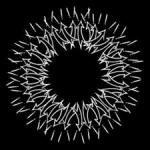 Alison Gopnik Research
Alison Gopnik Research
 Alison Gopnik Research
Alison Gopnik Research
Our lab explores how children create intuitive theories about the world, other people, and themselves. I began my research career by exploring how language and cognition interact and how language reshapes our understanding of the world. In the eighties, I was one of the first “theory of mind” researchers. In particular, I studied how children come to understand their own minds. At the same time I helped formulate the “theory theory” – the idea that children have intuitive theories and use many of the same learning mechanisms as scientists. In the nineties I began to use the computational framework of probabilistic causal models, or “causal Bayes nets”, to help explain how children can discover the world from the limited evidence around them.
Right now my students and I are especially interested in how children learn about the causal structure of the world - how some things make other things happen. We explore how children learn by observing statistical patterns, doing experiments and watching the experiments of others. Most recently, we’ve been particularly interested in how children figure out psychological causality and how that helps them build a “theory of mind”. Our current interests include studies of the role of causal understanding in imitation, trait attribution, animal cognition, and even free will.
I began as a philosopher and I have also always written about how developmental psychology can help illuminate philosophical problems. I have written about the problem of other minds and self-knowledge and more recently, about inductive and causal inference, consciousness and morality. And I have a historical project that connects David Hume and Buddhism.